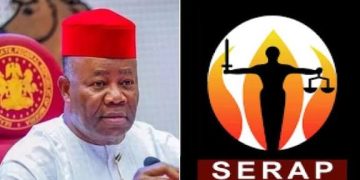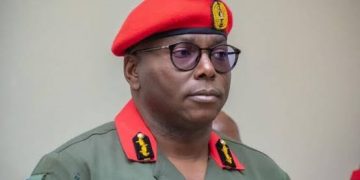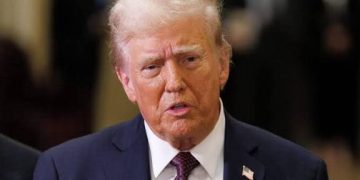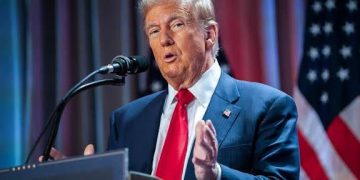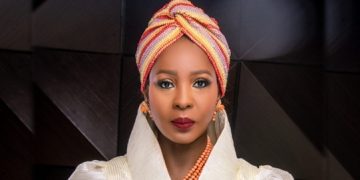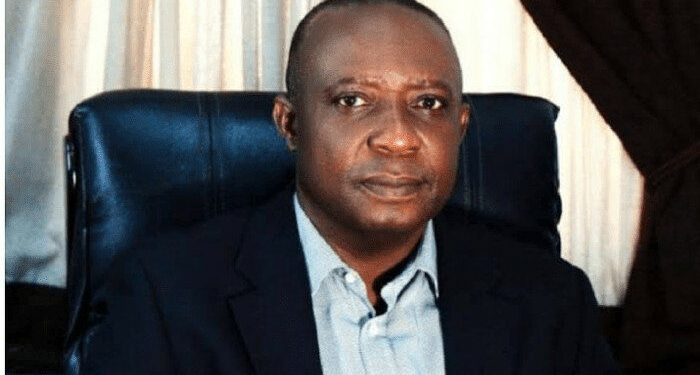President of the Nigerian Guild of Editors ,Eze Anaba, has appealed to President Bola Tinubu to extend access to low-interest loans, noting that it would help sustain the Nigerian media industry, amid rising cost of operations.
Mr Anaba made the appeal at the 21st All Nigeria Editors Conference (ANEC 2025) held at the State House Conference Centre, Abuja.
Speaking at the opening session of the event, the NGE president said the survival of journalism as a business was vital to the survival of Nigeria’s democracy.
“Without economic sustainability, our constitutional and social responsibilities become ineffective,” he said. “Therefore, we seek legislative and executive assistance to help balance our business, to make our businesses viable with our public duties. The media today is distressed. Most newspapers and broadcast houses cannot pay salaries — not because they are failing, but because production costs have become prohibitive.”
The NGE President said it was time for government intervention to prevent further decline in the sector. He proposed corporate tax reliefs for between five and 10 years to enable media houses to stabilise, meet operation costs, and sustain their watchdog functions.
“Let’s talk about tax deductions for media advertisers and corporate tax reliefs for between five to ten years,” Anaba said. “This will enable media houses to sustain their operations. Secondly, in recognition of the social responsibility role of the media, we propose VAT exemption on essential tools and equipment — a practice already in place in countries like Canada, India, and South Africa.”
He also urged the creation of a low-interest loan scheme through the Bank of Industry (BoI) or the Development Bank of Nigeria (DBN) to help media organisations upgrade their infrastructure, expand their reach, and retain jobs.
“In addition, we appeal to the government to incentivise large corporations to advertise in verified Nigerian media outlets through tax credits,” he added. “This will redirect revenue to local journalists, strengthen investigative reporting, and reduce reliance on foreign grants.”
Anaba further proposed the establishment of a Digital Transition and Innovation Fund to support multimedia storytelling, data journalism, and digital transformation in newsrooms while preserving editorial independence.
“We call for digital transition and innovation grants. A media development fund should be established to support the digital transformation of Nigerian media, promoting data journalism and multimedia storytelling to avoid political interference,” he said. “Such a fund should be managed by an independent board.”
On press freedom, the NGE President called for the repeal of laws that inhibit media operations and urged the government to establish a Media Freedom and Safety Charter — to be endorsed by the Presidency, and backed by the legislature and judiciary — to protect journalists from arbitrary arrests and misuse of legal provisions.
“Democratic governance flourishes only where citizens are well-informed and when the media acts as a credible, independent watchdog,” he said. “Editors will continue to defend the sanctity of truth, insist on transparency, and hold power to account — not as adversaries of government, but as constructive partners in national progress.”
He emphasised that journalism should be recognised as a public good deserving of targeted fiscal incentives and developmental support, describing a free and vibrant press as essential to democratic survival.
“Governance becomes more transparent and citizens better informed when journalists are respected, protected, and granted access to information,” he added. “When the press thrives, democracy breathes; when the press is stifled, democracy suffocates.”
Reinforcing the conference theme, Anaba urged editors to uphold the values of truth, fairness, and patriotism in their editorial judgment, saying the pen must never become an instrument of division or hate but a tool for healing and nation-building.
He reaffirmed the Guild’s commitment to ethical journalism, professional development, and the defense of press freedom, expressing optimism that the deliberations at the 21st ANEC would generate practical ideas to shape policy, restore public trust, and strengthen Nigeria’s democracy.


